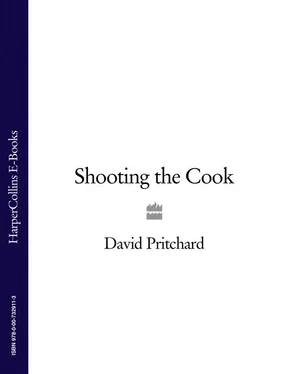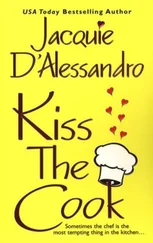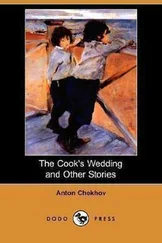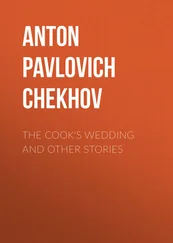On the night I went for dinner I can’t remember who I was with but, such are my priorities, I do remember what I ate. We had clams followed by steak frites and a bottle of the house red. Because we were late arriving, it wasn’t long before Keith made an appearance from his hot kitchen. He walked among the tables like an adjutant surveying the recruits’ canteen, asking the occasional customer if everything was to their liking. He started chatting to an expensively dressed couple sitting at a table underneath the gnu or ibex or whatever it was. They had parked their new Porsche on the pavement outside and were spending much of their time admiring it. Without asking, Floyd helped himself to a large glass of their wine and then in a loud voice apologized for not having any scampi in the basket left because the Bristol Estate Agents Fine Dining Club had been in at lunchtime and scoffed the lot along with all the Blue Nun he had in the house. They thought this very funny and so did the rest of the diners. Who would he pick on next?
He reminded me of Graham Kerr of Galloping Gourmet fame. This was an imported series from New Zealand shown on the BBC in the early Seventies. Old ladies in the studio audience would be doubled up laughing as Mr Kerr leapt over chairs, simultaneously quaffing a glass of wine without spilling a drop. He’d gallop back to his kitchen area and fold in the béchamel sauce for the moussaka he was making. Then suddenly he’d dash off with a spoonful of seasoned minced lamb to another part of the studio and stuff it down the throat of some poor unsuspecting old dear. People weren’t watching it because they wanted to learn how to cook, they were watching because the man was funny and having a good time—surely what entertainment and cooking are all about?
Well, of course, the inevitable happened. I think Floyd was saving us to last. After pouring himself a generous glass of our red wine, he started to tell us how much he disliked people who worked in television. As far as he was concerned they were all liars and cheats. ‘They come into my restaurant pissed out of their heads, promising me the earth with my very own series. I break open my very best brandy, then they piss off and I never see them again.’
I couldn’t help but notice he had eyes that one minute twinkled with merriment, and the next looked like they were on fire as if he was about to burst into tears, rather like a small boy who’s had his fishing rod confiscated.
I told him I thought he was a very funny man who cooked well. I’m not sure whether he appreciated the word ‘funny’, but he went on to explain, in his sixty-a-day voice, how he had prepared the clams we’d had earlier. He talked passionately about his long love affair with Provence: the red wine, the olive oil, the fields of sunflowers and lavender, the soft golden light and the colour of the buildings, the spicy sausages and the salt cod with aioli. To him it was heaven and he yearned to get back there.
I think it was his voice that convinced me that he had something special about him. There was definitely a hint of danger about the man too. He reminded me of Richard Burton with a touch of Peter O’Toole. I wasn’t quite sure whether he wanted to punch me in the face or pour me another glass of wine (sadly we’d run out). I said I’d really like him to make an appearance on RPM . My idea was for him to cook a main course for a dinner party for less than a pound a head. He told me to bugger off.
Undeterred, the next morning I drew up a little contract which included a small payment for him to appear on the programme and drove round to his restaurant. He opened the sash window upstairs, cigarette in hand, and I think he must have thought I was an over-enthusiastic customer, as he looked completely bemused. I reminded him of our conversation the night before and said I’d be round the following day with a camera crew to film him creating a culinary masterpiece on a shoestring.
When we arrived the next day there, on a crowded kitchen table, were four rabbits the size of whippets, bottles of Pouilly-Fumé, cognac, saffron, bunches of fresh purple garlic, large chunks of Bayonne ham, and a wicker basket full of apricot-coloured mushrooms. There must have been over a hundred pounds’ worth of food in all, enough to feed at least twenty people, and I was paying for it.
So what happened to my wonderful idea of creating a meal for less than a pound a head? The short answer, as put by a slightly irritable Mr Floyd, was ‘bollocks to that’. He told me he saw the filming as a God sent opportunity to show off his formidable culinary skills and to create a flavour of his beloved Provence. He thought my suggestion of cooking a dinner party menu for less than a pound a head quite tiresome and typical of some left-wing television producer who knew nothing about food. (He called me left wing. I felt quite proud. I’d never been called that before.) I should have seen the warning signs then.
That was how our first filming session started. The rabbit dish was superb and there was loads left over. Was there rabbit with wild mushrooms, simmered gently in white wine, on the menu that night at Floyd’s Bistro for a modest twelve pounds or so? I wonder. The filming wasn’t terribly good, but Floyd did say one thing that day I’ll never forget—that cooking was the new rock ‘n’ roll.
‘Cooks on television,’ he pronounced, ‘could be as famous as rock musicians and racing car drivers.’
I didn’t believe him at the time, but I do now.
Twenty-five years ago no one could have foreseen the incredible popularity commanded by food programmes on television today. Now we have a whole army of chefs representing virtually every personality trait. Sexy, aggressive, posh, young, practical, not so young, pioneering, grumpy, scientific, philosophical, funny—and then, of course, Delia.
In the late Seventies and early Eighties there were many programmes about food and cookery on television but they were mostly huddled together on BBC2. Fanny Cradock and her poor downtrodden husband Johnny, along with her young traumatized assistants, were on our screens for years doing mind-boggling things with coloured piped mashed potato. I found it impossible to think of her as a happy fulfilled woman. She looked as if she’d spent the night crying her heart out and had hurriedly and, not too expertly, applied some extra makeup before walking into the studio. I watched her not so much for the culinary tips, but because I liked seeing her berate her monocle-wearing husband for getting in the way.
Then there were the mellifluous tones of the highly respected Derek Cooper introducing the viewers to his world of cooking. Marguerite Patten popped up from time to time. I regard her as the matriarch of all television cooking shows. Madhur Jaffrey hit the gastronomic bull’s eye by teaching us how to make a proper curry using fenugreek and tamarind. Ken Hom did more for the wok-making industry than Chairman Mao and the exotic Robert Carrier taught us about tagines and couscous from his home in Morocco. Glynn Christian, a direct descendant of the famous Fletcher who cut the intolerant Captain Bligh adrift in the South Seas, entertained us for a while before drifting off himself somewhere I know not where. It was a pretty crowded house but through it all Delia’s star got brighter and brighter. And years later, even when she boiled an egg, over three million people tuned in to see it wobbling around in a saucepan of simmering water—hoping, no doubt, it would be as hard as rock when she cracked it open. Like many a male viewer I found her quite sexy, but a bit schoolmarmish (maybe that was the attraction), and her food looked appetizing. Clearly she was someone the viewer could trust, like the sensible girl next door who does shopping for elderly neighbours. Inexplicably I had an overriding sensation that she was standing on casters and being pulled around the television studio on a long piece of string by a member of the production team, and that as soon as she stopped filming she’d crack open a bottle of white, open up the Silk Cut and put on Led Zeppelin.
Читать дальше












